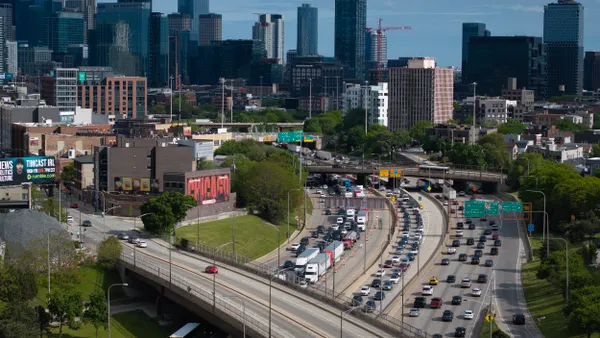Dive Brief:
- General Motors (GM) announced Friday that it would invest $300 million to build an all electric vehicle (EV) at its plant in Orion Township, MI. The vehicle had been slated to be built outside the United States; the decision to move production to Michigan is expected to add 400 jobs.
- GM did not release any details about the vehicle, but said it would be based off the architecture for its Bolt EV.
- The company said its decision to move manufacturing to the Orion Township plant was based in part on the trade deal between the U.S., Canada and Mexico. It also comes amid national criticism for GM’s decision to end operations at several of its North American plants, including one in Lordstown, OH.
Dive Insight:
GM has staked its future on electric cars, with the stunning announcement in November that it would cut 15% of its workforce and discontinue five models as it prioritized fully electric and autonomous vehicles (AVs). That included ending the Chevy Volt, the company’s first electric-hybrid vehicle.
The potential plant closures and job losses have drawn criticism from politicians on both sides of the aisle, with President Donald Trump attacking the decision at an event in Ohio. The announcement that GM would bring some of its electric manufacturing jobs back to the U.S. should take some of the sting out of the restructuring. The Orion Township plant was idled in 2009, but was reopened a year later and now produces the Bolt, among other models.
As part of its announcement Friday, GM also said it would invest a total of $1.8 billion across U.S. operations, adding 700 new jobs.
Although it’s unclear exactly what the new EV will be, GM has said it would release more than 20 electric models by 2023, and has said it would make Cadillac into an all-electric brand. The loss of the Volt hybrid signals a pivot to fully electric cars that would compete with companies like Tesla. GM has also said it will roll out an autonomous ride-sharing service as early as this year.
Despite the addition of the 400 new jobs, the overall employment uncertainty signals the massive shifts that will face all sectors as autonomous and electric vehicles come online and become more widely-used. A Brookings Institution analysis found that some 9.5 million jobs across several sectors will be affected — though not necessarily lost — amid the digitalization of transportation, especially in manufacturing. Automakers and cities will face significant political pressure as they navigate that changing workforce.










